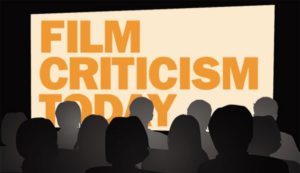It’s intriguing to read so many critics praising “Vice,” the film charting Vice President Dick Cheney’s ascent to the White House.
Story after story trumpets the film’s Oscar chances and the marvelous performances by Christian Bale in the title role and Amy Adams as Lynne Cheney.
The Critics’ Choice Awards just gave “Vice” nine nominations, including Best Picture and Best Director for Adam McKay. That’s on top of multiple Golden Globes nominations from last week.
And then you stumble upon film critic Kyle Smith’s takedown of the movie, hitting theaters nationwide Dec. 25. Smith writes: “Near the start, writer-director Adam McKay, who somehow segued from Will Ferrell movies to this InfoWars-style garbage dump, implies that Cheney’s father-in-law murdered his mother-in-law by drowning her in a lake. Huh? What does this have to do with Cheney? Is there more evidence for this than is presented in the movie, which is none?”
The rest of the article is equally damning.
What happened? How could one film critic see “Vice” so differently than his peers? It’s simple. Smith is conservative, and his writing reflects his world view. Conversely, the vast majority of film reporters and critics alike lean to the left, some dramatically so.
“Vice” director McKay routinely injects his progressive politics into his art, including movies like “The Big Short” and “The Campaign.” By all accounts he’s done so again, something many critics happily cheer on or downplay to give the project more gravitas.
We’re not bringing critics from The Nation, Mother Jones or other overtly progressive outlets into the conversation. These are writers who toil in supposedly neutral outlets.
The Hollywood Foreign Press Association consists of roughly 90 voting members representing a large swath of outlets. The Critics’ Choice Awards? About 250 members (this reporter is one of them). And the vast majority let their progressive ideology flow into their reviews in ways large and small. I’ve read their reviews over the years. It’s not hard to see.
Film critic bias wasn’t always this overt. Yes, film scribes leaned to the left in the past. They typically tried to keep that to the side while reviewing movies. They certainly didn’t name check the Bechdel Test, which measures how many scenes feature women talking to other women, among other gender criteria, as happens now.
The late, great Roger Ebert is a fine example of this evolution. He didn’t allow his political leanings enter the frame as aggressively as he did later in his career.
Modern reviewers follow his lead. They bark at movies that don’t have diverse enough casts. They assault comedies like “Snatched” which cast minorities in villainous roles as “racist.”
An Entertainment Weekly critic gave the recent sci-fi thriller “Kin” an “F” rating because its teen protagonist used an alien gun to help save his family. That pro-gun message sank the film’s appeal in the critic’s estimation. Even if the gun was alien in origin and critical to his family’s survival.
![]() Modern critics routinely label faith-based or right-of-center movies as propaganda, plain and simple.
Modern critics routinely label faith-based or right-of-center movies as propaganda, plain and simple.
The recent “Gosnell” is a perfect example. The film, about the trial of abortionist Dr. Kermit Gosnell, strains to avoid an overt pro-life message. It even castigates a Republican politician, Tom Ridge, mid-film.
Film critics slammed it as propaganda all the same.
“The film never loses sight of the choir to which it is plainly preaching,” cried the Los Angeles Times critic.
Meanwhile, the same critical community heaped praise on Michael Moore’s “Fahrenheit 11/9” this year, a film brimming with absurd arguments, fact-free attacks and farcical bits that would make most documentary filmmakers retch.
The RottenTomatoes.com score for the film? An 81 percent “Fresh” score.
Conservative filmmaker Dinesh D’Souza traffics in some of Moore’s hyperbolic storytelling, albeit with far less finesse. The RottenTomatoes.com scores for his last two films, “Death of a Nation” and “Hillary’s America?” Zero percent “Rotten” and 4 percent “Rotten,” respectively.
Some cultural critics have been blasting today’s film reviewers as too “male.” That includes Cate Blanchett and Sandra Bullock, who mentioned the “problem” during the press push for the all-female “Ocean’s 8” heist flick earlier this year.
Media outlets quickly latched on to the gender diversity issue, nodding along with the Oscar-winning actresses. What about ideological diversity? If roughly half the country leans to the right, and the other half leans left, shouldn’t both sides be represented?
Smith himself zeroed in on the problem brought up by the press’s early adoration of “Vice.”
Moreover, published reviews from film critics, whose politics as a group suggest Daily Kos meets Mother Jones, tend blithely to ignore factual, logical, and conceptual errors in movies made by their ideological allies.
If modern film critics held movies like “Vice” and “Fahrenheit 11/9” to the same standards as the rare, right-leaning projects, there wouldn’t be a problem.
That’s anything but the case with most critics. That leaves many movie goers unprepared for the movies they pay good money to see.
Christian Toto is the editor of HollywoodInToto.com, the Right Take on Entertainment


